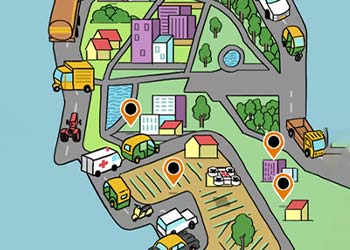The Twin Advantages of Diversity and Familiarity in Teams
For services that use fluid or changing teams, it is commonly believed that prior familiarity among members helps the team work better. But team members who know each other may not always learn from each other, necessitating team diversity. Professor Sarang Deo and his co-authors use ambulance transport data from the London Ambulance Service to understand how diverse teams operate when processes are more or less standardised.
Read more
















